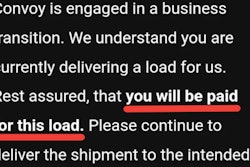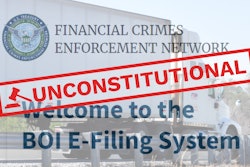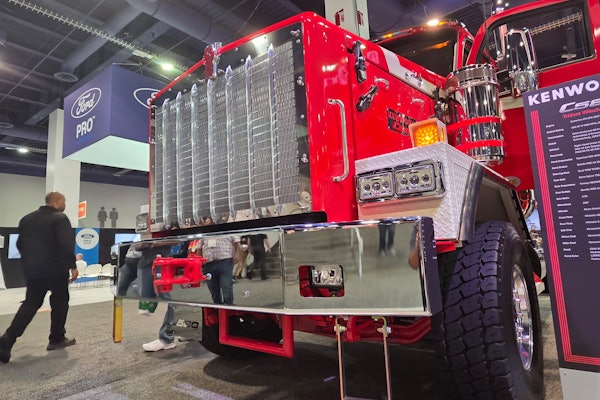The final rule issued Jan. 10 setting forth new guidelines for determining employee or independent contractor classification under the Fair Labor Standards Act is being challenged on two fronts -- legislatively and legally. The challenges come with mere days remaining before the new guidelines are set to go into effect, on March 11.
In Congress, Rep. Kevin Kiley (R-California) introduced a Congressional Review Act (CRA) resolution with 55 cosponsors to overturn the Department of Labor’s (DOL) final worker classification rule. Sen. Bill Cassidy (R-Louisiana), ranking member of the Senate Health, Education, Labor and Pensions (HELP) Committee, introduced a companion CRA resolution in the U.S. Senate.
A CRA resolution is a tool that Congress can use to examine and overturn federal agency rules.
“Gavin Newsom and Julie Su’s AB 5 severely restricted independent contracting in California, destroying thousands of livelihoods and harming California’s economy,” Kiley said.
Kiley went on to claim that Su, currently serving as Acting Secretary of Labor, modeled the DOL's new contractor rule on AB 5, which is demonstrably false. At the same time, he and others painted the multifactor contractor classification test specified in the rule as holding the potential to “cost millions of independent professionals across the country their livelihoods while restricting the freedom of many millions more to have flexible work arrangements. Our legislation under the Congressional Review Act nullifies this terrible regulation and protects independent contractors. Washington should support workers, not regulate them into oblivion.”

[Related: 'Truckers are tired' of regs' shifting sands: DOL rolls back contractor-classification rule]
Like any Congressional bill, the CRA must be passed by both chambers and signed by the president or passed over a presidential veto by two-thirds of the members of each house. If the resolution becomes law, the rule would be repealed, and the DOL would then be barred from reissuing the rule or creating new rules that are what the CRA calls "substantially the same" as the repealed rule without specific congressional authorization.
The Labor Department's rule, as previously reported, is set to take effect March 11. As suggested above, it's not a one-strike-and-you're-out ABC test for contractor classification like California's AB 5. Rather, it's a multifactor test that differs from the prior Trump-era test in a few ways. Instead of using the “core factors” that were part of Trump's 2021 IC classification test, the new rule returns to a “totality-of-the-circumstances analysis” that considers the worker’s “economic reality” through six factors weighted equally. Those six factors are:
- Opportunity for profit or loss depending on managerial skill
- Investments by the worker and the potential employer
- Degree of permanence of the work relationship
- Nature and degree of control
- Extent to which the work performed is an integral part of the potential employer’s business
- Skill and initiative
[Related: New DOL rule on contractor/employee status under fair-labor law: The legal perspective]
ATA among groups suing DOL over rule
On the legal front, a coalition of groups, including the U.S. Chamber of Commerce, the American Trucking Associations and others, is suing the Labor Department, Acting DOL Secretary Julie Su and Jessica Looman, Administrator of the Wage and Hour Division of the DOL, over the rule. The lawsuit was filed in the Eastern District of Texas, Beaumont Division.
This is the same court that in 2022 reinstated the Trump-era worker classification rule that the new rule is replacing. At the time, the court said the DOL’s withdrawal of Trump’s rule violated the Administrative Procedure Act (APA), which governs how federal agencies develop and issue regulations.
In the new lawsuit, the plaintiffs claim the 2024 rule “fails to address (and will only add to) the confusion over the proper classification of independent contractors and will irreparably harm not just companies employing independent contractors nationwide, but the workers themselves. The 2024 Rule should likewise be enjoined.”
[Related: Are leased owner-operators really 'independent contractors'?]
The lawsuit further alleges that the new rule also includes “the same APA errors this court previously identified. ... Among other deficiencies, DOL has acted arbitrarily and capriciously by once again attempting to withdraw (and now replace) its prior, comprehensive regulations without adequate justification. The Department has failed to consider important aspects of the problems it purports to address, has relied on factors that it should not have considered, and has failed to meaningfully consider reasonable alternatives.”
The plaintiffs request that the court vacate the DOL’s withdrawal of the 2021 independent contractor rule, as well as the department’s issuance of its new rule, and enjoin DOL from enforcing the new rule. The groups also ask that the court declare that the 2021 Independent Contractor Rule has been and remains in effect as of March 8, 2021.
[Related: AB 5's latest: Why interstate trucking should be exempt]











